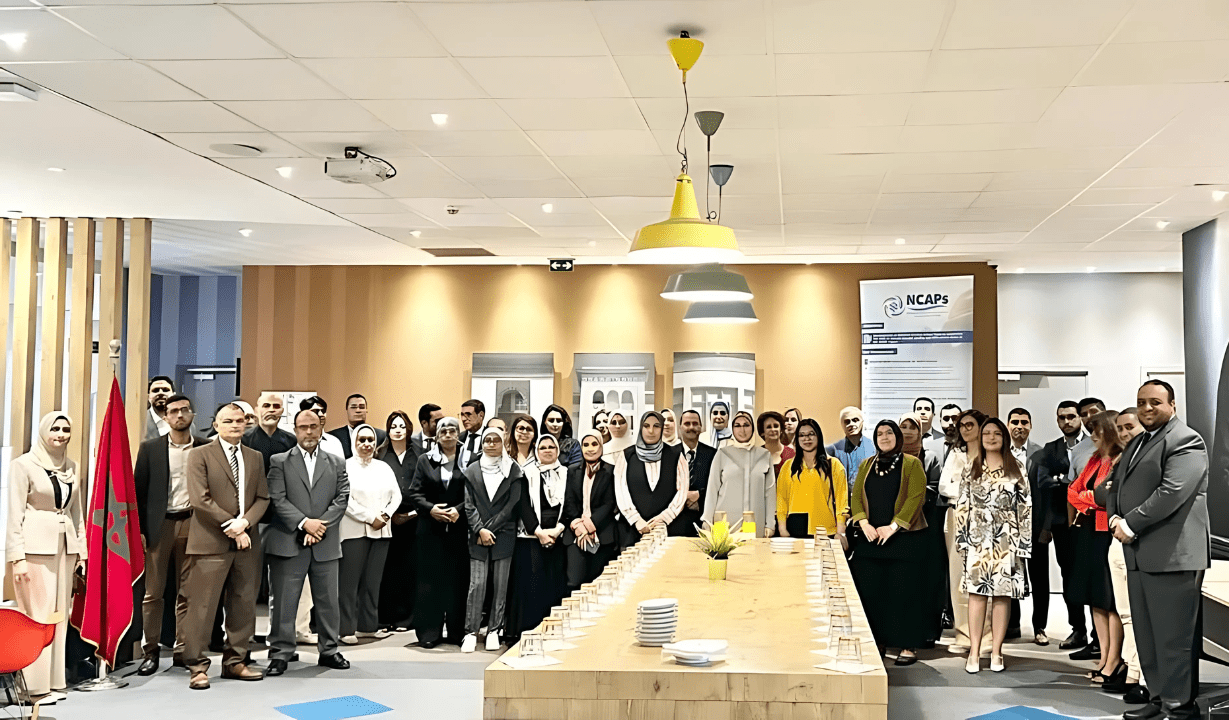Morocco Launches National Cooling Action Plan
with Strong Institutional Support

Morocco has officially launched the development of its National Cooling Action Plan (NCAP), setting a national course to deliver sustainable, equitable and climate-resilient cooling solutions. The initiative is implemented by the United Nations Environment Programme (UNEP) Cool Coalition and the Regional Center for Renewable Energy and Energy Efficiency (RCREEE), with support from the Climate and Clean Air Coalition (CCAC).
A two-day programme in Rabat brought together key ministries, national agencies, technical experts, and stakeholders across the cooling sector. The meetings marked both the NCAP’s launch and the inaugural session of its National Steering Committee.
The NCAP responds to Morocco’s rising cooling needs across sectors such as health, food, and buildings, amid increasing temperatures, rapid urbanisation, and economic development. As part of the Cool Coalition’s global NCAP programme, it will define specific policy and investment pathways tailored to the national context.
Senior officials delivered remarks, including Myriem Touhami, Head of the Finance Unit at UNEP’s Climate Change Division; Hafsa Lakhlifi, Director of Circular Economy and Pollution Control at the Minamata Convention on Mercury; Hind Abdaoui, Head of Service in Renewable Energies and Energy Efficiency at Morocco’s Ministry of Energy Transition and Sustainable Development; and Abdelali Dakkina, Morocco’s CCAC National Coordinator. Each underscored Morocco’s commitment to integrating cooling into national sustainable development and climate priorities.
Participants examined the national workplan for Morocco’s NCAP and discussed the structure and mandate of the Steering Committee. The consultant team presented the modelling approaches that will inform technical assessments of current and future cooling demand, alongside a roadmap for comprehensive data collection across key sectors and a timeline for next steps.
The following day, the Steering Committee convened at the Ministry of Energy Transition to establish the NCAP’s governance and coordination framework. Members discussed institutional roles, data strategies, cross-sectoral engagement, and decision-making structures to ensure the NCAP aligns with both domestic policy goals and international commitments such as the Kigali Amendment and the Global Cooling Pledge. The consultants presented their approaches to modelling current and future cooling needs under different policy scenarios, while the committee provided guidance on ensuring the methodology reflects national realities.
Industry engagement formed another important dimension of the launch. UNEP and RCREEE visited key actors in Morocco’s cooling landscape: the Moroccan Association of Refrigeration Professionals (AMPF), which plays a central role in promoting sustainable practices and innovation in the sector; Ventec Maroc, which has operated in Morocco since 1949 and became the exclusive Carrier representative in 1960; and Froidel, a Moroccan company with more than four decades of experience in industrial and commercial refrigeration.
Morocco’s NCAP is part of a broader global movement. Forty-two countries are currently developing or implementing NCAPs as part of the Global Cooling Pledge, the world’s first collective commitment to reduce cooling-related emissions by more than 60 percent by 2050, while expanding access to life-saving cooling services.
With the next round of Nationally Determined Contributions due in 2025 and the 2025 UN Climate Change Conference (COP30) approaching, Morocco’s efforts come at a critical time. The NCAP will help integrate sustainable cooling into national planning, ensuring that policies meet the needs of communities already feeling the impacts of extreme heat. The groundwork laid in Rabat, from strong institutional governance to private sector engagement, signals Morocco’s determination to shape a cooler, more resilient future.
